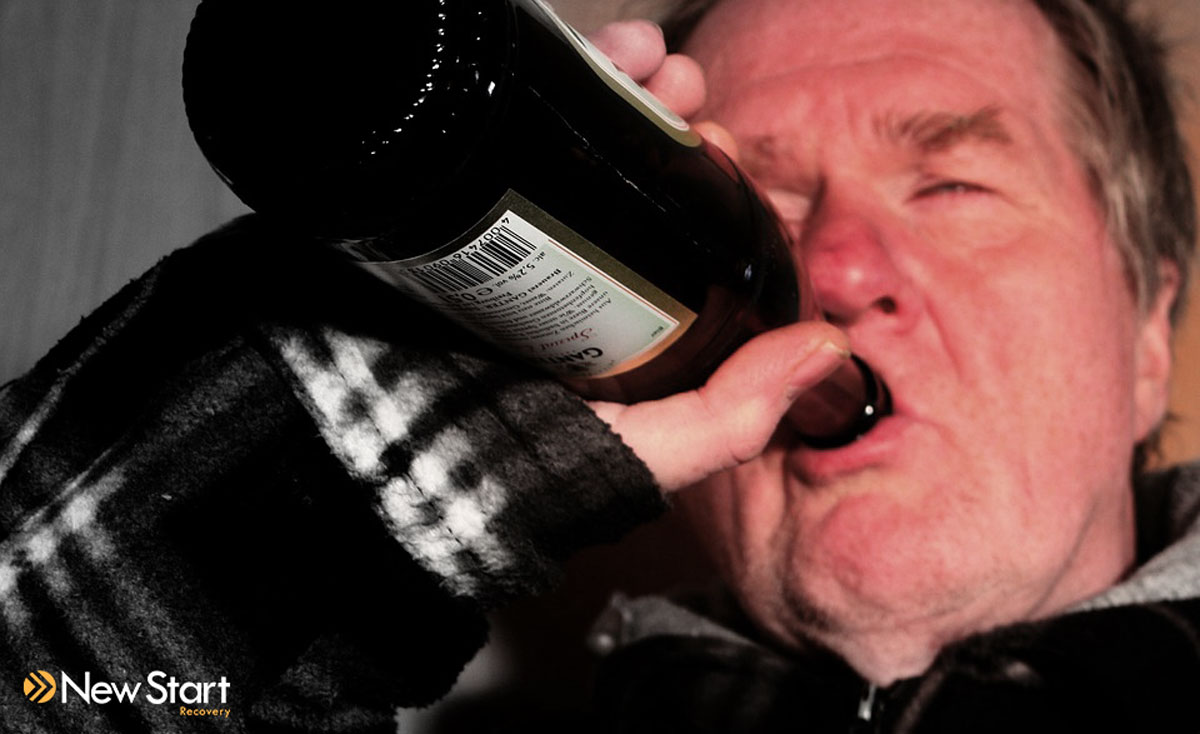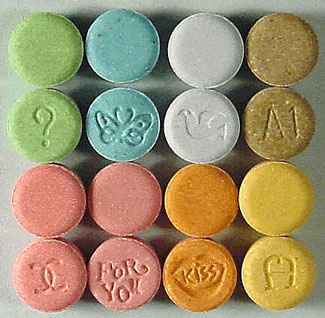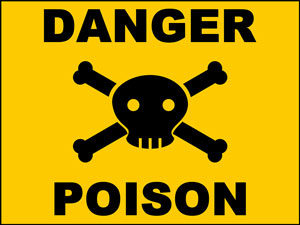Many people still have a hard time accepting that marijuana has some medical benefits. And those debates and studies have been going on for decades. So, I don’t have any trouble imagining the shock people feel when they hear that the UK is going to perform a trial in which MDMA will be used to treat alcoholism. I’ll rephrase: the trial will use a Schedule I addictive drug to treat alcohol addiction. I’ll give you a moment to process that…
 Confusion, nausea, anxiety, blurred vision, muscle tension… these don’t sound like things you’d want when trying to help someone battle alcoholism. But these are the side effects that are typically linked to MDMA. How does it make sense that this drug – which can also cause someone to become addicted – can treat alcohol addiction?
Confusion, nausea, anxiety, blurred vision, muscle tension… these don’t sound like things you’d want when trying to help someone battle alcoholism. But these are the side effects that are typically linked to MDMA. How does it make sense that this drug – which can also cause someone to become addicted – can treat alcohol addiction?
An MDMA Breakdown
MDMA (3,4- Methylenedioxymethamphetamine) is the active ingredient in Ecstasy, which you might also have heard called Molly, E, and X. It’s a synthetic psychoactive drug. Particularly, MDMA is an empathogen, which is a class of psychoactive drugs that stimulate openness, social communication, and empathy. It’s typically consumed in pills or tablets.
 MDMA was originally used in warfare testing as well as medicated psychotherapy. But it was banned by the DEA in the 1980s for safety reasons. It is now most commonly used recreationally as a party drug. People use it at nightclubs, raves, parties, and music festivals. They see an appeal in its “openness” effects, such as lowered inhibitions, increased sensory perception, and euphoria. However, as I mentioned earlier, MDMA has a long list of negative side effects, such as nausea and confusion. It can also cause depression in the long run if used too frequently for too long.
MDMA was originally used in warfare testing as well as medicated psychotherapy. But it was banned by the DEA in the 1980s for safety reasons. It is now most commonly used recreationally as a party drug. People use it at nightclubs, raves, parties, and music festivals. They see an appeal in its “openness” effects, such as lowered inhibitions, increased sensory perception, and euphoria. However, as I mentioned earlier, MDMA has a long list of negative side effects, such as nausea and confusion. It can also cause depression in the long run if used too frequently for too long.
How Can MDMA Treat Alcoholism?
The scientists who will be running this study are interested in the ways MDMA could enhance psychotherapy sessions for these people struggling with alcoholism. So, in reality, it’s not the MDMA that specifically combats alcohol addiction. It is actually going to be used to increase the effects of psychotherapy so that the therapy might then be more successful in helping someone overcome alcoholism.
We’ve established that MDMA is an empathogen. It promises to produce feelings of social connection, openness, and empathy. MDMA is supposed to facilitate a consistent empathic resonance. When used in psychotherapy, that empathic resonance should make the patient available to receive empathy from the therapist. When a patient goes to a psychotherapy session, he explains himself, his thoughts, and his feelings to the therapist. The therapist is first to show empathy and explains how he has interpreted what the patient has explained so the patient knows the therapist understands. But the patient has to be open to receiving the therapist’s empathy in order to feel understood.
To make it even simpler…
Think about a conversation you have with your friend Chris. You tell Chris that your girlfriend has been moody lately and snaps at you when things don’t go exactly as she expects. You tell him you don’t know what to do and you feel like you can’t even be around her sometimes. Chris listens and says something like, “Wow man, that sucks. I totally get how that can be pretty frustrating for you.” And you respond, “Yeah, bro. It is frustrating. I’m glad you get me.” While this isn’t exactly your typical psychotherapy session, the gist is essentially the same.
You vented your feelings, Chris listened, and then he explained that he understood your frustration. You – who were open to your friend’s empathy – accepted his confirmation of your feelings. Your friend isn’t going to charge you $100 an hour for this conversation, and I admit that it’s not exactly medical, but it gets the basic idea of empathic resonance across, right?
The Trial
Researchers at Imperial College London were granted permission to use MDMA on a small group of people who suffer from alcoholism. This group is made up of 20 heavy drinkers who were unsuccessful in previous alcoholism treatments. These patients will participate in psychotherapy sessions while under the influence of MDMA that is 99.99% pure. The trial is to take place within the next couple months.
The researchers predict that the MDMA in this trial will allow the patients to be more open, social, and empathetic towards their therapists who are helping them to learn to overcome alcoholism. This will cause their psychotherapy sessions to go smoother and have more effect over the patients. Basically, if the psychotherapy sessions are more effective, the alcoholism treatment will be more successful.
Scientifically Letting Go
In previous studies, MDMA was proven to be successful in helping trauma and anxiety. The trauma study was particularly successful. The results showed that MDMA helped about 80% of the patients involved to stop showing signs of PTSD.
But people are afraid of drugs like MDMA because of the loss of control they can cause. You won’t exactly go crazy on MDMA but it will cause your inhibitions to lower, which can be seen as a loss of control to many people. But doctors are now saying that control is what’s keeping disorders like alcoholism solid. Pushing things down and suppressing feelings only adds fuel to the disorder. In other words, a loss of control can be good. These researchers explain that letting go of control equals a better connection between patient and therapist, which, again, is the key to this whole study.
Dangers of Using MDMA
I know the whole “Let it go” thing was a huge phenomenon lately (thank you, Disney). But can too much “let it go” be a bad thing? MDMA can actually cause trauma for people who are only expecting the positive euphoric effects of the drug. Those who are unprepared for the emotional relatedness that the drug stimulates can have a hard time with the memories that come up. This resurfacing of memories and intense reception of feelings can actually be harmful if you don’t expect it. Instead of addressing trauma, MDMA can actually worsen it in these cases.
 It’s also important to note that the MDMA being used in this alcoholism trial is 99.99% pure. Most MDMA being sold as Ecstasy and Molly on the street doesn’t even come close to being that pure. If you buy E from a dealer off the street, there’s a good chance that it will have little to no MDMA in it at all. Instead, the tabs are laced with things like LSD, PCP, baby powder, fentanyl, and rat poison. These nightmare drug cocktails can cause severe medical issues and extreme negative side effects, including overdose and death.
It’s also important to note that the MDMA being used in this alcoholism trial is 99.99% pure. Most MDMA being sold as Ecstasy and Molly on the street doesn’t even come close to being that pure. If you buy E from a dealer off the street, there’s a good chance that it will have little to no MDMA in it at all. Instead, the tabs are laced with things like LSD, PCP, baby powder, fentanyl, and rat poison. These nightmare drug cocktails can cause severe medical issues and extreme negative side effects, including overdose and death.
Of course, on top of the MDMA being significantly more pure, researchers will monitor this trial closely and actual licensed therapists will be involved. But that doesn’t eliminate the negative side effects that naturally accompany MDMA. And there’s really no definite way to predict how each individual will react to the drug.
Is the Trial Worth It?
We aren’t sure if this trial will work. It has a solid hypothesis and the support of related research studies, but we won’t really know the effectiveness of MDMA on alcoholism until we see the results. So, what it comes down to right now is that alcoholism is a severe and potentially deadly disease. And some people don’t respond to other, more conventional treatment methods (as we see with this trial’s group of 20). But that shouldn’t mean they have to be left without hope. If something like MDMA has a legitimate chance of helping to treat alcoholism for some people, it deserves to be researched.
But the key here is research. These aren’t just average Joes off the street just looking for a high and coming in to interactively “study” MDMA. It’s a medical trial done by professionals with medical grade drugs paired with behavioral treatment. The presence of this trial does not equate the condoning of recreational use of MDMA. MDMA is still a Schedule I drug that can be incredibly dangerous when abused.
If you or someone you know is struggling with alcoholism or drug addiction, New Start can help. Call our addiction staff at 855-737-7363 for a free and confidential assessment.

